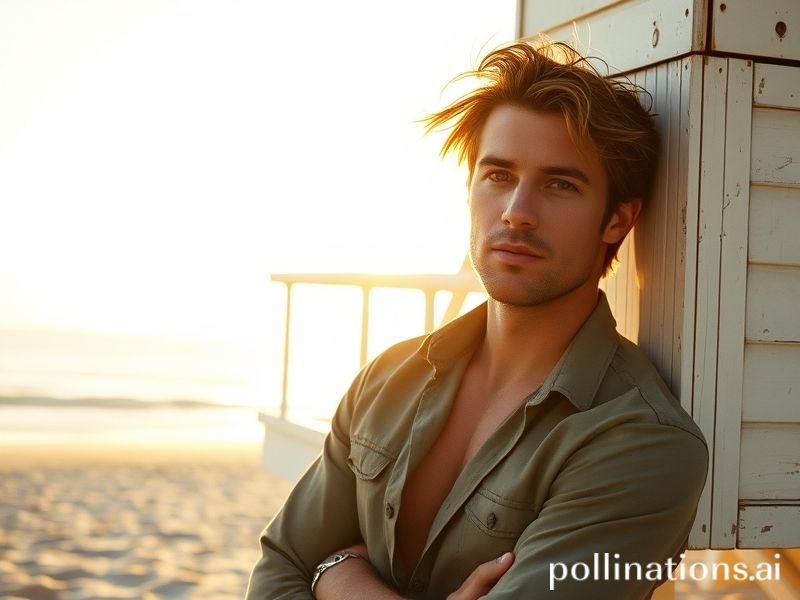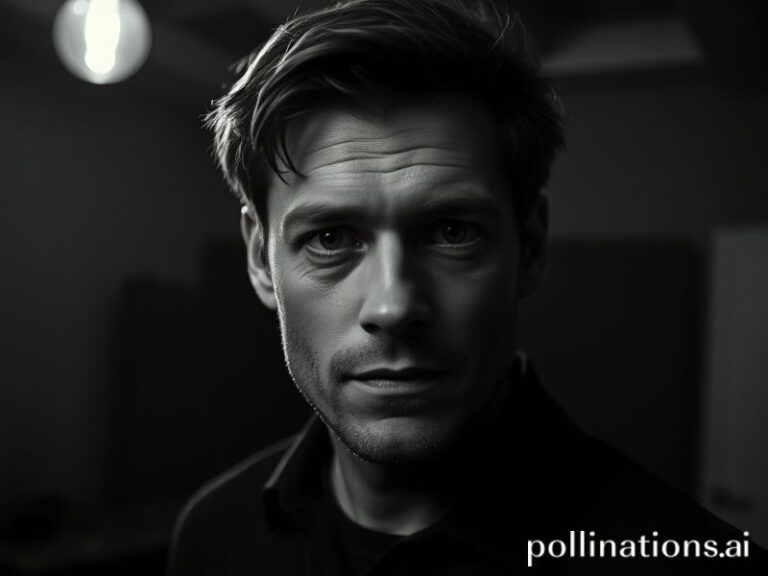Josh Duhamel: The Accidental Ambassador of American Soft Power and Hallmark Diplomacy
Josh Duhamel, a man whose surname sounds like a French cologne advertised between re-runs of Baywatch, has quietly become the diplomatic equivalent of that one friend who always gets invited to the party because he brings better snacks than anyone else. While the planet debates tariffs and TikTok bans, Duhamel has spent the last two decades slipping across borders with the stealth of a UN interpreter, armed only with cheekbones sharp enough to slice trade agreements and a résumé that reads like a NATO briefing gone rogue.
Start in Minot, North Dakota—population smaller than the average Moldovan bus station—where young Josh presumably learned that the only reliable export from the Great Plains is stoic good looks. Fast-forward past the obligatory Abercrombie catalogue, past the Miss World pageants he hosted (yes, really), and you arrive at a moment when Hollywood realized Duhamel could be deployed like cultural soft power: handsome enough to sell a Michael Bay explosion to Beijing, bland enough that no foreign ministry files an official protest.
Consider the geopolitical implications. When Transformers: Revenge of the Fallen rolled into Shanghai in 2009, Chinese censors trimmed fourteen minutes of robot-on-robot violence but left every second of Duhamel’s jawline intact. Coincidence? Perhaps. Or perhaps the Communist Party calculated that allowing one corn-fed American to smolder in IMAX was cheaper than an actual trade concession. The man became a walking, talking MFN clause in desert-camo cargo pants.
Meanwhile, in Latin America, Duhamel’s Spanish-language dubs turned him into an accidental telenovela heart-throb. From Bogotá to Buenos Aires, abuelas now pause their daily rosaries to swoon over Captain Lennox saving the world from Decepticons, thereby achieving what the State Department’s entire Western Hemisphere Affairs bureau could not: bipartisan affection for a gringo in combat boots.
Europe, of course, remains unconvinced. The French insist his name should rhyme with “château,” the Germans catalog his films under “Kriegsromantik mit Roboter,” and the Italians simply assume he’s an off-season footballer. Still, Netflix algorithms shove his romantic comedies into every Milanese insomnia spiral, proving that even the EU cannot erect tariff walls against mediocre charm.
The true dark comedy arrives when you realize Duhamel’s latest career pivot—eco-conscious disaster thrillers and Hallmark Christmas movies—mirrors the globe’s own schizophrenic lurch between climate panic and escapist nostalgia. One week he’s planting trees in a Vancouver backlot to offset the carbon footprint of CGI tsunamis; the next he’s kissing a small-town baker under ethically sourced mistletoe. It’s as if the Paris Agreement were rewritten by a focus group of suburban moms and green-lit by a studio that still prints call sheets on single-use plastic.
Critics sneer that his range tops out at “amiable beefcake,” but that misses the point. In an era when soft power is measured in Instagram followers and vaccine donations, Duhamel functions as the human equivalent of a CARE package: comforting, vaguely nutritious, and unlikely to spark an international incident. When he turns up in Ukraine to film a refugee-camp cameo that no one asked for, the gesture is simultaneously benevolent and absurd—like sending a scented candle to a war zone. Yet the cameras roll, the headlines bloom, and somewhere a State Department intern sighs with relief that at least it isn’t Steven Seagal.
So here we stand, citizens of a fractured planet, watching a 50-year-old former pageant host negotiate the final frontier: streaming-service Christmas cinematic universes. Somewhere in Geneva, diplomats haggle over grain corridors; somewhere in Los Angeles, Duhamel signs a three-picture deal to save Christmas, again, with nothing but a snowplow and residual goodwill. The joke, of course, is that both endeavors are financed by the same multinational conglomerates, hedging bets on which export—wheat or wholesome American charm—will still move units after the next supply-chain apocalypse.
In the end, Duhamel survives not because he reinvents himself, but because the world keeps reinventing reasons to need a handsome, harmless American who looks good both in combat fatigues and a Santa sweater. Call it soft power, call it Stockholm syndrome, call it the enduring magic of symmetrical facial features. Whatever label you choose, the receipts are clear: global stability, like a Hallmark plot, is held together by equal parts delusion and dental work. And Josh Duhamel has great teeth.







